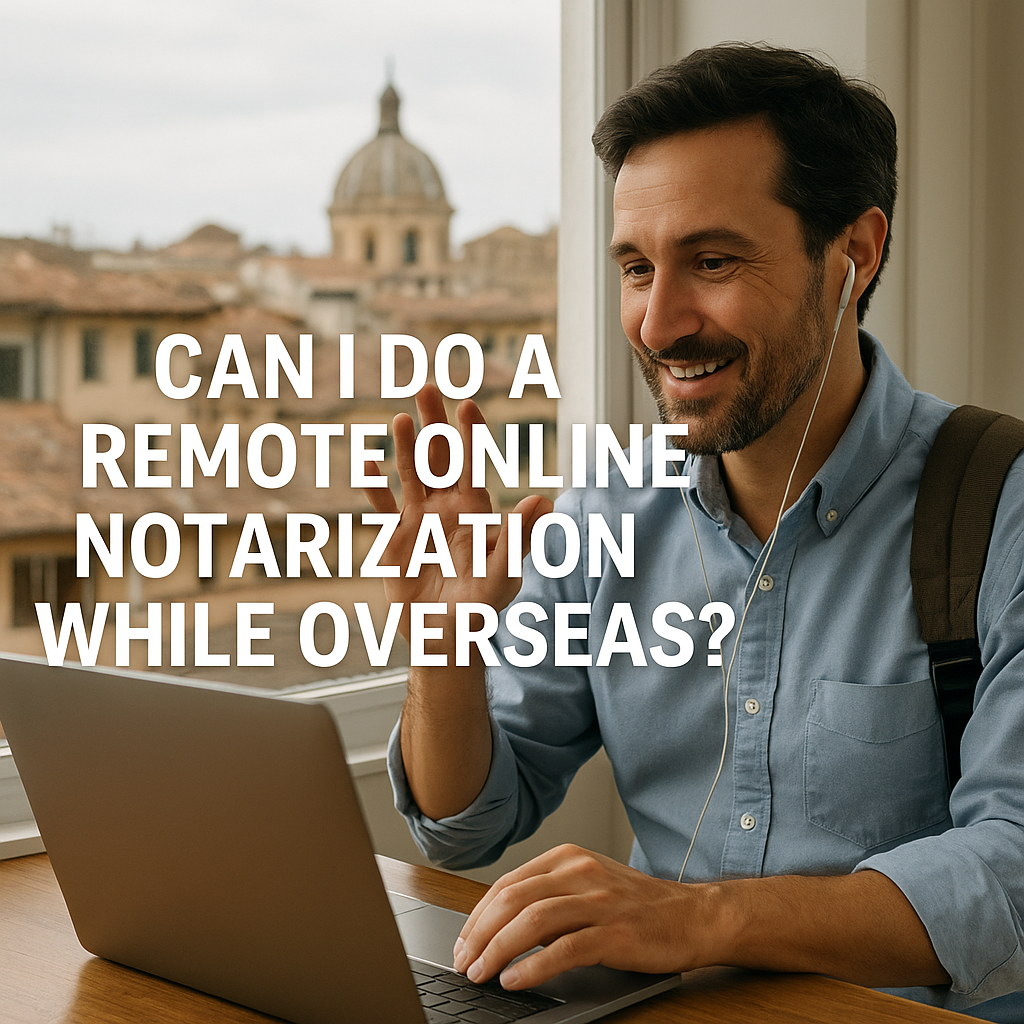If you’ve ever needed a document notarized, you may have heard that your bank offers notary services for free. It sounds like a no-brainer—but in reality, online notarization is often the smarter, faster, and more reliable choice. Here’s why thousands of people are skipping the trip to the bank and turning to remote online notarization (RON) instead.
1. Banks Are Notaries of Convenience—Not Reliability
While many banks advertise free notary services, that doesn’t mean a notary will always be available. In fact, many branches only have one or two commissioned notaries on staff. If they’re off, busy, or not trained in the type of notarization you need (like real estate documents or international forms), you’re out of luck.
With online notarization, you can connect with a licensed notary 24/7, even on weekends or holidays—no waiting, no uncertainty.
2. You Don’t Have to Leave Your Home (or Country)
Free notary at the bank? Great—if you can get there. But what if:
- You work odd hours?
- You’re traveling or living abroad?
- You have mobility issues or don’t drive?
With online notarization, all you need is a phone or laptop, your ID, and a few minutes of your time. You can be anywhere in the world and still get your U.S. document legally notarized.
3. Online Notarization Is 100% Legal and Secure
Online notarization is legal in all 50 states as long as the notary is commissioned in a state that allows remote notarizations. The session is recorded, your ID is verified with advanced technology, and the final document is digitally signed and sealed for tamper-proof security.
It’s not only legal—it’s often more secure and traceable than traditional pen-and-paper notarizations.
4. Speed and Convenience Win—Every Time
Let’s say you finally get an appointment with a notary at your bank. Now you need to print the document, drive to the bank, wait in line, and sign. That could take hours.
With online notarization, you can upload your document, verify your ID, meet a notary by video, and get your notarized file sent back to you—all in under 15 minutes.
5. Banks Don’t Notarize All Documents
Many banks refuse to notarize:
- Immigration forms
- Power of attorney
- Real estate or loan documents
- Wills or trusts
Online notaries, especially on platforms like MeetNotary.online, are experienced with a wide range of documents and know how to walk you through the process.
Final Thoughts
Yes, bank notaries are “free”—but they come with a hidden cost: your time, flexibility, and certainty. Online notarization offers:
- ✅ 24/7 access
- ✅ No travel or appointments
- ✅ Instant delivery of notarized documents
- ✅ Legal compliance across all 50 states
So next time you need something notarized, ask yourself: Is “free” really worth the hassle? If not, choose online notarization—the modern way to notarize.


